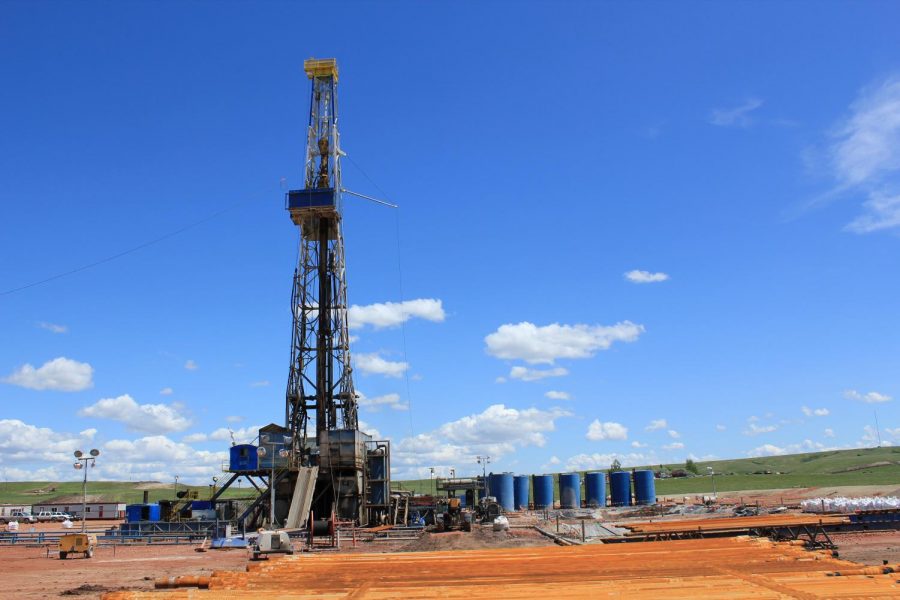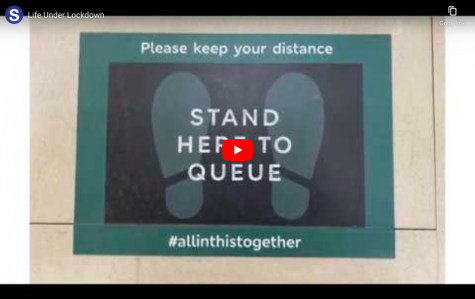Ever since the coronavirus pandemic has devastated domestic and international economies, global oil markets have been under intense pressure.
Indeed, the collapse of oil prices reached its peak April 20, as U.S. oil prices fell below $0, reaching a record low of $-37.63 a barrel since 1983.
The harsh lockdowns implemented by the majority of the U.S.’s trading partners led to severe plunges in international economies and the temporary halt on major trading routes.
However, oil continued to be vigorously produced, and it quickly coincided with the dire collapse in oil demand, driving the oil prices down. Therefore, the negative oil price per barrel indicates that producers are indeed paying the customers to buy the oil off their hands as storage facilities are overfilled.
Rodolphe Stern (’22) said that the rarity of such intense economic repercussions on the oil market underscores the magnitude of the pandemic.
“If nobody is buying the oil anymore, the oil price will drop,” he said. “Then, companies like BP and Shell will begin to sell oil at a lower price. The fact that it fell below zero, I think, is an extremely rare occurrence.”
Elena Alexander (‘23) said that as companies are experiencing tremendous loss from selling their oil at historically-low prices, it would likely push them to pause their production until the ratio of demand and supply stabilizes.
I think the decline in value of oil is going to cause a lot of panic, in society and in the economy. People can often be misled by the numbers, as they don’t often reflect the whole picture.”
— Kyle Yu ('21)
“Now, some oil producers are shutting down their wells and they may even have to shut their companies completely. This can lead to a decrease of even more jobs in the U.S. than there already has been,” she said.
Additionally, Stern said that the numerous governmental actions taken to contain the virus resulted in decreased usage of technologies, businesses and services reliant on the oil industry.
“Currently, people are using their cars less; people are using planes less, and people are using ships less. People are using everything less,” he said.
Therefore, Stern said that the significantly reduced oil demand has led to volatile oil prices.
According to Financial Times, the significant decline in oil value continued into the next day. It was further amplified due to traders’ attempt to physically take the product from overfilled oil storage capacities before the expiration of West Texas Intermediate’s, the U.S. benchmark in crude oil pricing, June and May contracts.
The consequences of such a sharp plunge will be negatively felt in a broad spectrum of other industries. Many banks, which provide loans to oil companies, will be hurt by the inability of various oil businesses to repay their loans. Additionally, oil-service companies that provide drilling and engineering services for the industry will suffer.
Kyle Yu (‘21) said he believes that many will misinterpret the negative oil prices. He said that even though oil markets will continue to be under pressure, the negative digits do not fully reflect the current economic situation in America.
“I think this [decline in oil value] is going to cause a lot of panic, in society and in the economy,” he said. “People can often be misled by the numbers, as they don’t often reflect the whole picture.”
Indeed, the intense pressure surrounding oil prices has slightly abated, as oil rebounded above $0. Yu said that such a slight recovery depicts the slow improvement of the situation, even if the oil prices will remain relatively low.
“At least right now, they have stabilized and are above $0. However, the historically- low numbers are still a reflection of the lockdown,” he said.
Alexander said that a full recovery in oil prices is likely, as the demand for oil will go back up.
“I think that oil companies will bounce back,” she said. “Oil prices have been known to generally fluctuate a lot, and even though [people] have never seen a decrease by this much, the demand will go back up again [after lockdown].”









